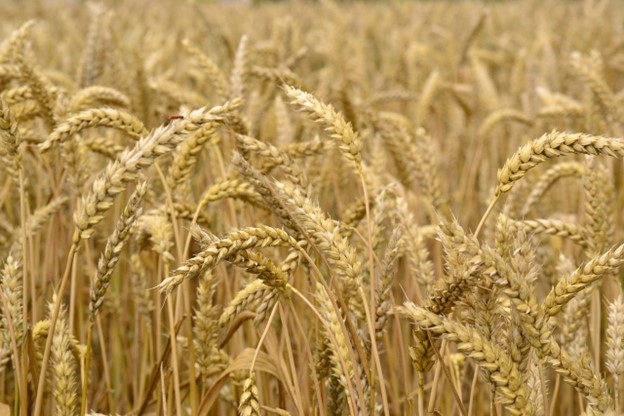Are Russia’s trade relationships composed of grains of chaff or are they golden grains that Putin is using to undermine the West’s influence in the developing world?
It is more than two years since Russia’s invasion of Ukraine. In response to international condemnation of his war and to avoid the impact of economic sanctions, Putin has increased grain sales to China, the Global South, and other non-Western states with the goal of undermining Western influence there.
Russia’s grain exports to Algeria grew six-fold since February 2022. Exports to Saudi Arabia grew by 3.2 times. Since the beginning of the war in Ukraine, a significant share of Russia’s grain exports have gone to Egypt (22.5 percent of overall sales) and Türkiye (19.3 percent). Although Putin faces challenges when selling grain supplies abroad, his strategy is to isolate Ukraine, by strengthening Russia’s economic ties and exploiting food insecurity in these areas. Many of the targeted African nations are suffering from famine now, according to United Nations data on food security.
The UN Committee on World Food Security defines it as meaning that all people, at all times, have physical, social, and economic access to sufficient, safe, and nutritious food that meets their food preferences and dietary needs for an active and healthy life. “Moscow is pushing for BRICS [Brazil, Russia, India, China, South Africa] to collaborate more actively in the grain trade to undermine the West’s ability to influence critical decisions” in the more fragile states, according to Sergey Sukhankin, of the Jamestown Foundation. Working with the BRIC’s enables Russia to more easily circumvent global economic sanctions. In March 2024, Putin publicly supported creating a BRICS grain exchange. He justified it by labeling it a response to a request last fall by Eduard Zernin, chair of the Russian Union of Grain Exporters. The union is involved in almost 80 percent of Russian grain exports, according to Sukhankin. Zernin stated in a late December letter reprinted in Kommersant.ru that the BRICS are “forced to act as price takers, but Western firms get to make all the important decisions.”
“Moscow’s use of grain as a tacit weapon is an aim to place itself in a dominant position on the global stage to prevent further degradation of its economy due to its war in Ukraine,” says Sukhankin. Russian agricultural experts lament that after World War II, when America was the leader in agricultural trade, it effectively was in charge of international operations. Today, they say, the aggregate output of the BRIC countries represents up to 40 per center of world grain trade and that warrants a move away from US dominance.
Intelligence officials in Washington suggest that Russia is in effect running a geopolitical disinformation campaign that supports conspiracy theorists who argue that the top one billion wealthiest people in the world are hoarding global resources and letting the developing world suffer. Russia is pushing to dismantle the influence of the so-called “golden billion” of the West. The Kremlin’s goal in this non-Western campaign is to push back against the capitalist states and help fund Russia’s war by bolstering domestic grain production.
To curb Ukrainian grain and related commodity exports, Sukhankin says that Russia is employing two main strategies: occupying regions of Ukrainian territory and spreading disinformation. The occupied areas are among the most fertile in the country. If Russia can continue their hold over this land, it could impact up to 30 percent of the world’s grain flow. Last fall the East Asian Daily Monitor reported that Russia’s disinformation propagandists are openly calling for the deepening of a rift between Ukraine on one side and the Hungarian, Polish, and Slovak agricultural industries on the other. In 2023 Russian grain sold to the European Union (EU) increased ten times, to 180,000 tons, making it the EU’s fourth-largest grain exporter to the 27 Member states. While small in contrast to Ukraine’s 1.2 million tons, it is influencing states in the region.
Grain exports to China are emerging as a primary pillar of the Sino-Russian partnership and an area where Russia has the upper hand. In the Global South, adverse climate condition and low grain yields have pushed states toward imports from Russia, especially in Sub-Saharan Africa. Conditions on the ground have helped Putin’s narrative that if it doesn’t export grain to avoid a famine, EU Member states
Will experience a migration crisis that could destabilize all of Europe. Putin’s attempt to realign the international rules-based order and global financial system is unlikely to make Russia the dominant global player, but it is yet another emerging dimension in Putin’s toolkit aimed at taking down the West.
Daria Novak served in the U.S. State Dept.
Photo: Pixabay
